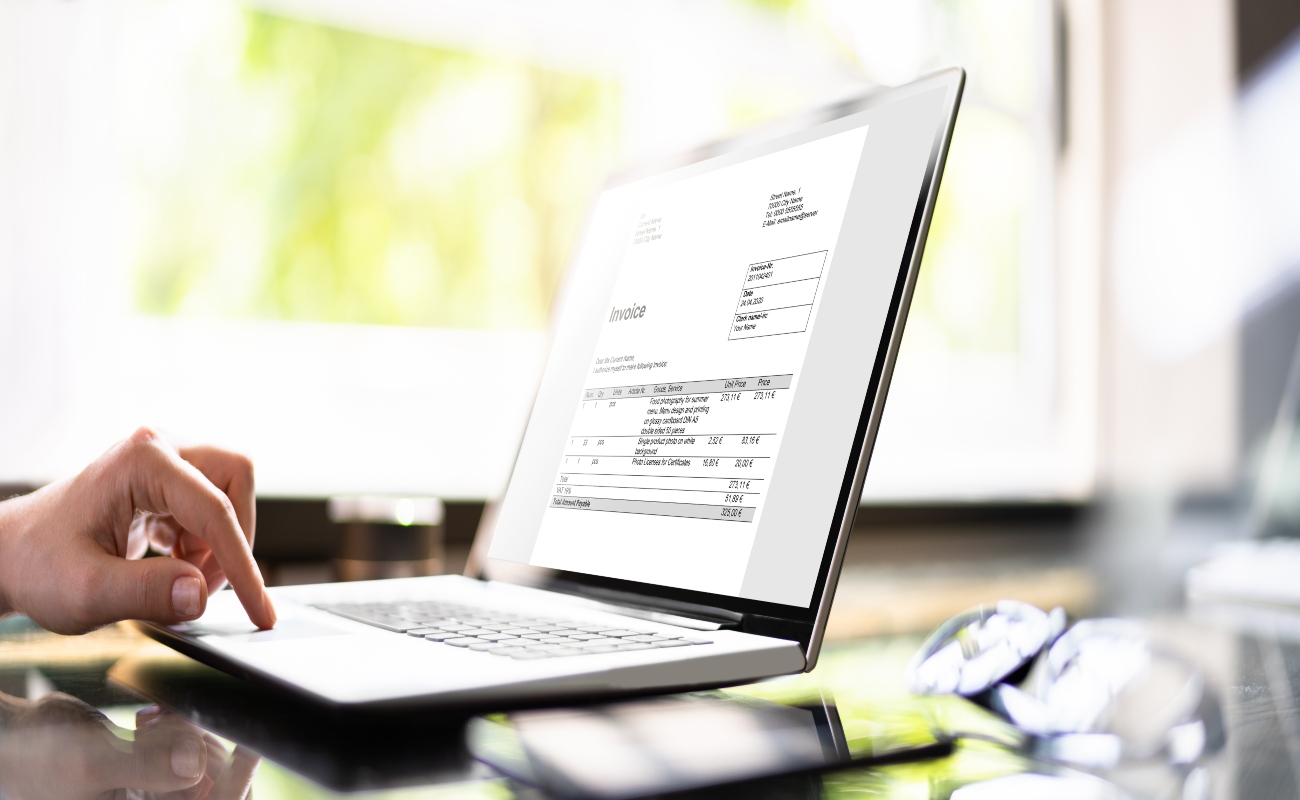Author : Webconversion

Cybersecurity: how to protect your financial data in the age of dematerialization?
Phishing, ransomware, fake supplier fraud... It's essential to be fully aware of the risks in order to better protect against them and choose appropriate solutions, such as those offered by our Partner Dematerialization Platforms (PDP), which have SecNumCloud qualification and ISO 27001 certification.
To know more about it
Invoice reconciliation: how does it work?
You receive a supplier invoice and need to check it against the purchase order. On paper, nothing too complicated. In practice, the essential step of reconciling supplier invoices with purchase orders can quickly become as complex as it is time-consuming, as your company's activity intensifies... But let's take a look at things in order and find out how to go about it.
To know more about it
3 steps to good cash management
Effective cash management is an essential foundation for the success of any business. Careful monitoring helps to ensure financial stability, anticipate cash requirements and make informed decisions. It is therefore essential to optimize cash management to ensure that your business remains healthy, even in financially difficult times. While this may seem a complex task, adopting a number of best practices makes it easy to reap all the benefits. Here's how.
To know more about it
2024 reform: what role will dematerialization operators play?
nitially scheduled to take effect on July 1, 2024, but finally postponed to 2026, the e-invoicing obligation is still generating confusion. This is due in particular to the change in the system for transmitting and receiving electronic invoices that accompanies it: companies will now have to go through a dematerialization platform. This implies the arrival of new players in the dematerialization circuit. After the reform, only the Public Billing Portal (PPF) and partner dematerialization platforms (PDP) will be authorized to send invoices directly. And what about dematerialization operators? Let's talk about them.
To know more about it
Generalization of electronic invoices in your company: how to prepare your project?
You don't have to worry about implementing electronic invoicing in your company. Properly prepared, the transition to this new mode of operation has every chance of going smoothly between now and 2026 (postponement of the entry into force scheduled for 2024). Far from being reduced to a simple connection to a dematerialization platform, electronic invoicing in your company must respect a few key stages. How can you successfully deploy such an important project in your organization? Where do you start? In this article, you'll find our advice to help you prepare your project.
To know more about it
Corporate accounting: challenges and opportunities
Corporate accounting is a key function of any business, large or small. It involves keeping accurate financial records, managing cash flows and producing regular financial reports. But far from being reduced to calculations and the alignment of figures, it plays a major role in strategic decision-making and the communication of financial performance. Find out more about the broad principles of corporate accounting and the opportunities it offers management in our article.
To know more about it
Issuance of customer/supplier invoices: the advantages of automation
Manual invoice processing tends to monopolize accounting departments, distracting them from more strategic missions. In order to relieve companies of their administrative obligations, and to push the dematerialization of their financial and accounting processes even further, the government has launched a major reform around electronic invoicing, effective in 2026 (postponed from the planned entry into force in 2024). Companies will be required to issue electronic invoices. But what if automating the issuing of customer invoices was already a first step towards the digital transformation of businesses?
To know more about it
Public accountants: what advice should you give your clients when choosing a PDP?
B2B companies will be obliged to switch to electronic invoicing from 2026 onwards (postponed from 2024). As chartered accountants, you are the trusted advisors of company directors, and therefore in the best position to guide them in the dematerialization of their invoices. As the deadlines approach, more and more of your clients are asking questions about their choice of platform. While some may have already opted for the Public Billing Portal (PPF), others prefer the more functional PDP alternative. To help them make the best possible choice, here's some advice you can give them.
To know more about it
CFO and CIO: how will electronic invoicing improve their collaboration?
The widespread introduction of electronic invoicing from 2026 (postponed from 2024) is taking place against a backdrop of increasing digitalization of all business functions. Widely publicized in the media, this reform promises companies lower costs, greater efficiency and greater transparency in their business transactions. However, to reap the full benefits, CFOs and CIOs need to work together to take account of business issues and the impact on their company's IT systems. Is electronic invoicing a perfect opportunity to develop collaboration between CFOs and CIOs? We explain.
To know more about it
Software editor, choose a trusted PDP partner to support you in electronic invoicing!
As of 2026 (postponed from 2024), electronic invoicing will be mandatory. French companies therefore need to start preparing now for the introduction of electronic invoicing. Software publishers who edit and process invoices will also be impacted by the reform, as they will have to adapt to a new, well-defined technical framework. They will have two options: either make the technical developments required to meet the demands of the tax authorities, or develop a strategic partnership with an approved PDP... provided they find the trusted platform that will support them in their activity!
To know more about it
2024 reform: how to choose your electronic invoicing platform?
Initially scheduled for July 1, 2024, but finally postponed to 2026, the obligation to use electronic invoicing is bringing in new players. Under the new system for transmitting and receiving electronic invoices, companies will send them to their customers via a dematerialization platform. They will no longer be able to do so directly between themselves! Public Invoicing Portal (PPF), Partner Dematerialization Platforms (PDP) or Dematerialization Operators (OD)... the choice of these intermediaries is wide, penalizing companies that can quickly feel disoriented in this new ecosystem. What type of platform should you choose? What are their differences? Here's how.
To know more about it
CIOs: what challenges await you in 2023?
Widespread inflation, rising energy prices, disruption of certain global supply chains, talent shortages: since the end of the Covid crisis, most companies have been forced to navigate by sight in a severely deteriorated economic and geopolitical environment, due in particular to the stalemate in the Russian-Ukrainian conflict. Against this backdrop of great uncertainty, CIOs' level of confidence remains high, and according to a Gartner study, French companies are even planning to increase their IT budgets by an average of 2.7% in 2023.
To know more about it